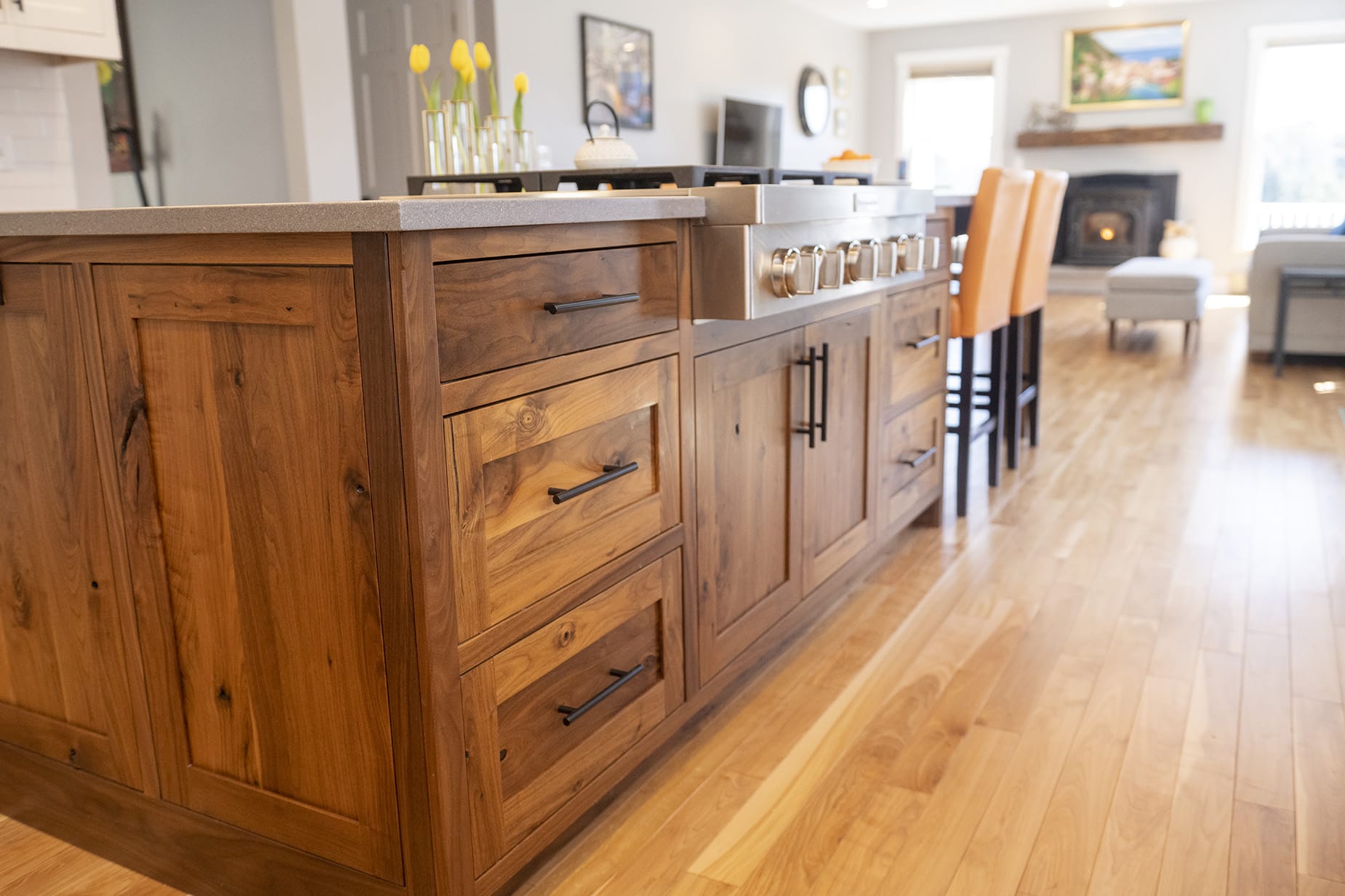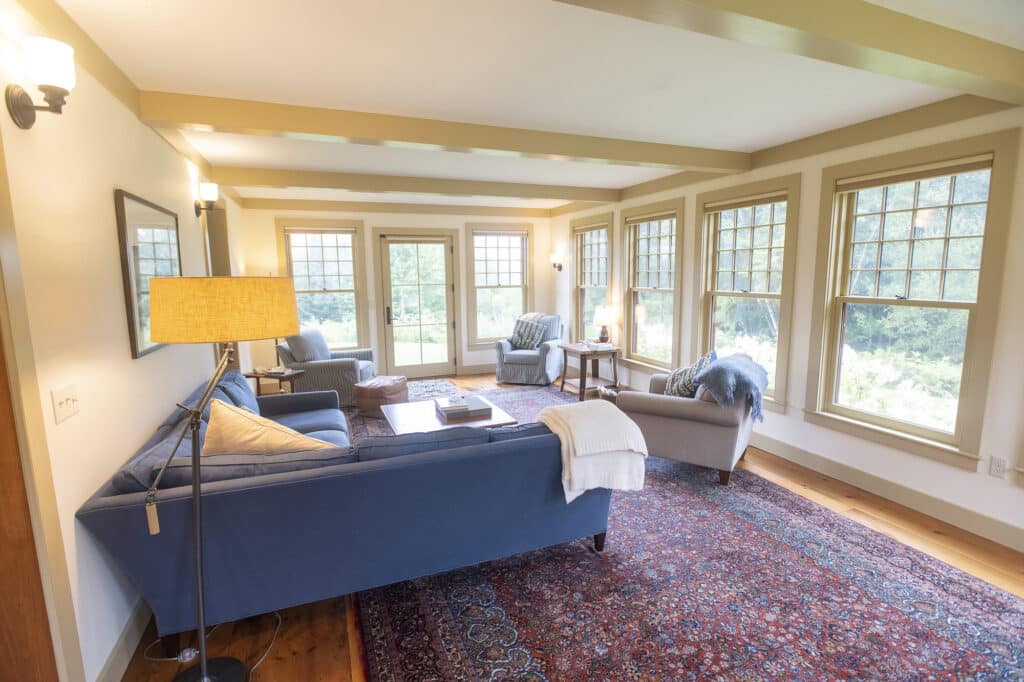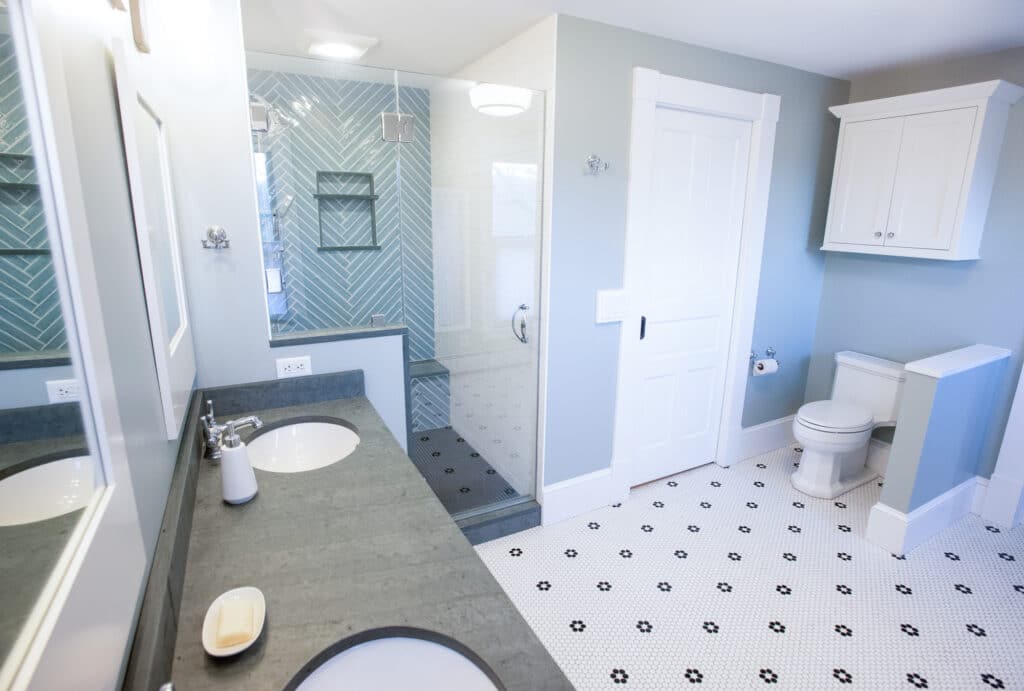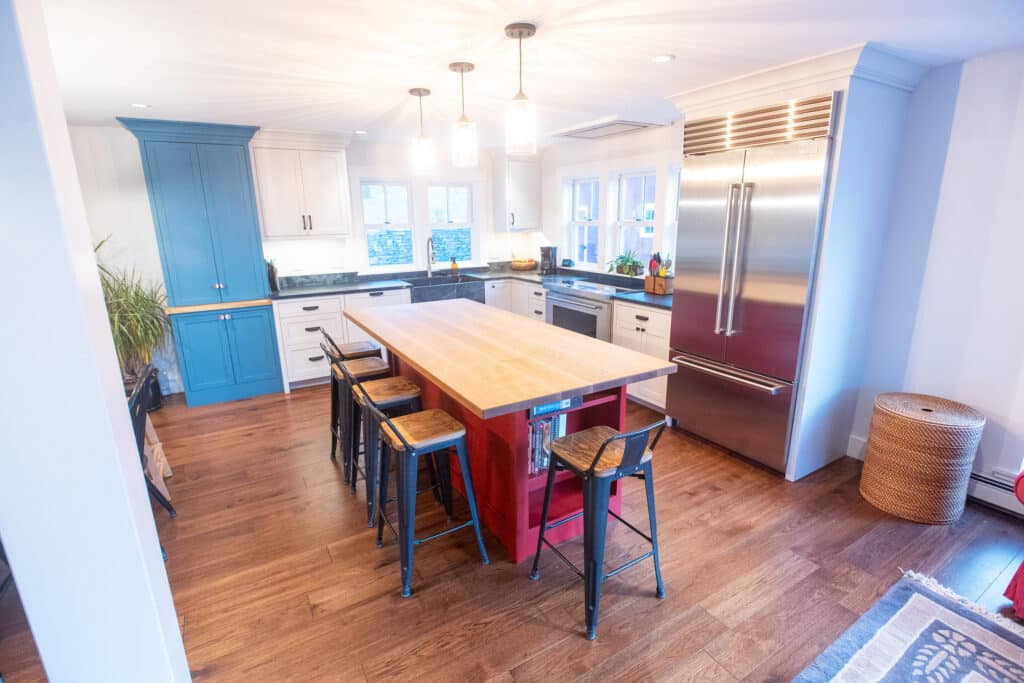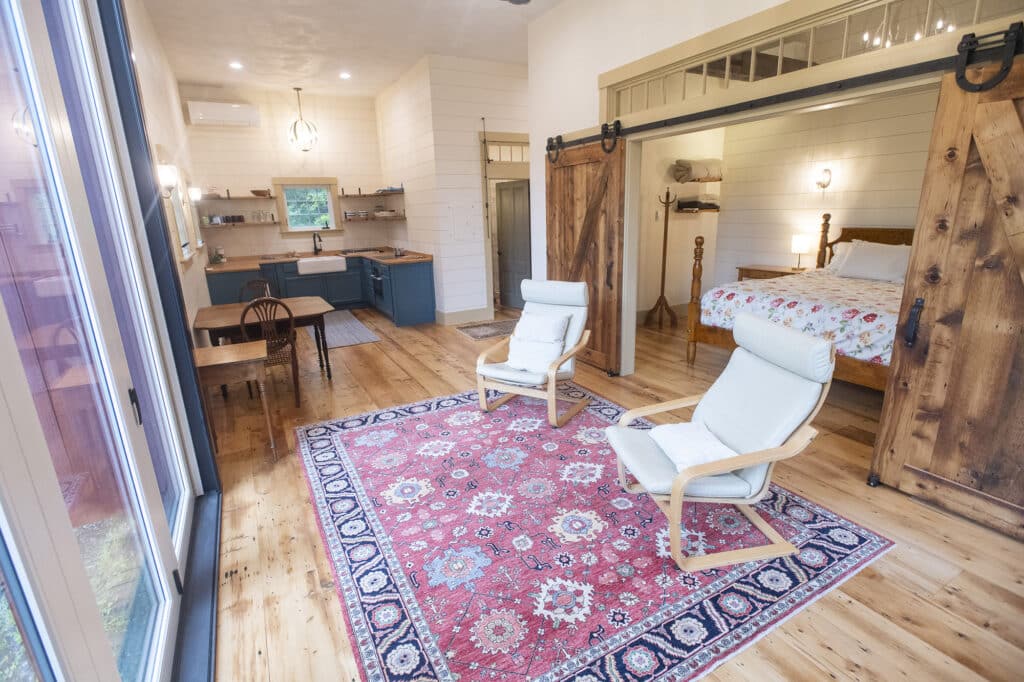Introduction
Including custom cabinetry in your home remodeling project will often contribute to a sense of good design, quality, and care. Cabinetry can be more than just storage as it lends to the feel of your space, mirroring your tastes, and ensuring that every corner serves a purpose
Designing Your Custom Cabinetry: Aspects to Consider
Purpose and Function
First, determine what you want from each piece. If you’re considering a kitchen design, think about what you want to be able to access from various locations within the kitchen.
Aesthetics
While functionality is key, the look and feel of your cabinets play a crucial role. Consider the style you want to convey, whether it’s modern, traditional, or somewhere in-between. This will influence everything from the type of wood to the finish and hardware.
Spatial Dynamics
Remember to account for the entire space. Custom cabinets should complement the room’s overall layout and other design elements. Think about how your new cabinets will interact with existing features like windows and adjacent rooms
Adaptability
As life changes, so do our needs. Design your cabinets with the future in mind. Think about features that might be beneficial down the line, such as storage space for the kids’ things, or (as unpopular as it can be to say this) cabinet hardware that helps those of us with arthritic hands.
Environmental Considerations
Choose materials that are responsible choices for the health of our planet. Using relatively local materials like Maple and Cherry here in Vermont are good choices in that they don’t have to get shipped across the world to get here.
Selecting the Right Materials: More than Just Aesthetic Appeal
Diverse Wood Choices
Cherry, walnut, birch and maple are among the popular choices for cabinets with a natural finish. For paint grade cabinets maple is a common wood species to build cabinets from. These woods are not just beautiful; their durability aligns with woodworking traditions.
Strength and Longevity
Your chosen material should stand the test of time. Durability is a testament to quality craftsmanship and the caliber of the materials made to use your cabinets.
Harmony with Design
The chosen materials and cabinetry details should be in harmony with the overall design vision, ensuring a cohesive and/or complimentary look with other areas in your home.
Installation: Where Craftsmanship Shines
A Comprehensive Approach
Installation begins with a thorough assessment, understanding the room and any potential challenges like out of level floors
Precision is Key
Professional cabinet installers will carefully assess the conditions of the space to ensure that the new cabinetry will perform as intended. After all the care it takes to design and fabricate your cabinetry you’ll want to make sure the install team is consistent in quality with the rest of the process.
The Professional Touch: Why Expertise Matters in Custom Cabinetry
Committing to custom cabinetry is more than just picking designs; it’s entrusting professionals with the transformation of your space. Here’s why that’s essential:
Tailored Solutions
Unlike off-the-shelf solutions, professionals can adapt and tailor the design to your unique space and requirements.
Guidance on Materials
Skilled cabinet makers have in-depth knowledge about different woods and construction techniques guiding you to make informed choices.
The Downsides of Prefabricated Cabinets
While prefabricated cabinets might seem convenient, they come with their share of challenges:
Limited Customization
These cabinets often come in set sizes and designs, potentially leaving not utilizing your space effectively.
Questionable Durability
Not all prefab cabinets are made of quality materials, potentially leading to early wear and tear. If you decide to use prefabricated cabinets make sure the materials are of high quality.
Lack of Personal Touch
Prefabricated options don’t offer the same level of personalization and often lack the unique touch that custom solutions provide.
Warranty Issues
When there is a cabinet ready for installation and it comes broken from the factory (these things happen!) the last thing you’ll want is to delay your countertop template that can only be completed after the cabinets are set. Custom cabinetry reduces the risk of a cabinet being damaged in transport, and if it is, the cabinetmaker is typically local and can address the need quickly.
In Conclusion
Custom cabinetry is an art and a science, blending design principles with craftsmanship.. When you choose custom solutions, you’re not just getting storage; you’re investing quality, a reflection of your taste, and the promise of longevity.


